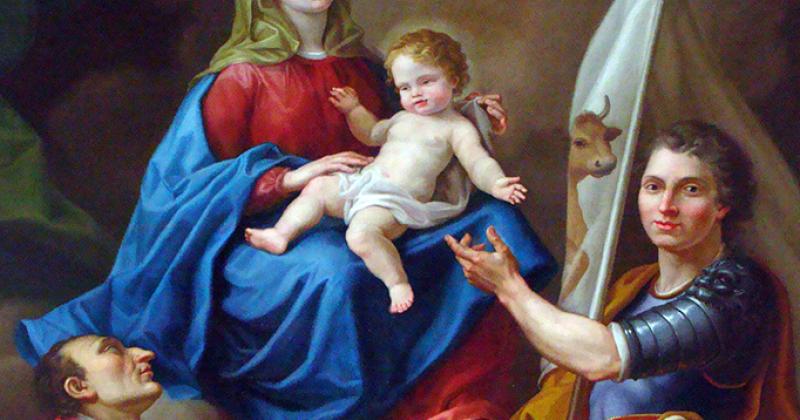During the 1576 plague that menaced the northern Italian city of Milan and eventually took 25,000 lives, the civil government fled the city out of fear. The archbishop of Milan, St. Charles Borromeo, took over, assured the people he would not abandon them and, together with priests from the parishes and religious orders, began to care for their material and spiritual needs.
He organized hospitals, cared for orphans and brought the sacraments to those who were quarantined in their homes. He got priests to offer Masses in public squares and the middle of streets so that people could participate from their houses. He sold his personal goods and much of the diocesan treasury to feed the hungry and had the tapestries of his residence converted into blankets to warm the poor.
As a good shepherd, he was willing to risk his life to care for both the souls and the bodies of those entrusted to him and was able to persuade so many of his brother priests to join him. Recalling how Christ died for them first, he declared that Christ “does not even request this pathetic life of ours, but only that we put it at risk.”
He challenged them to pay attention not only to what can kill the body, like the pestilence, but also to what can harm the soul, commenting, “The devout souls of our brethren languish with desire for divine things.”
And providing them, he argued, is not a small matter.
“I will certainly say that the sick do not need our assistance in such a way that without it they would have no hope of salvation, but often our services are necessary,” he said. “Besides, it is indisputably clear that we all understand how much [the sacraments] benefit not only the bad, but also the good, and how much alleviation they usually bring to the sick body and above all to the soul solicitous for its salvation.”
The greatest illustration of that point was how he scaled a mountain of corpses to give absolution and viaticum to a man at the top of the heap who had been placed there prematurely.
His example of courage tied to charity is a mirror for the Church and her leaders in every age, most especially at times of crisis. As all of us confront the coronavirus, we can all profit from how St. Charles put the Catholic faith into action in the most demanding and dangerous circumstances. I would heartily recommend reading Msgr. John Cihak’s superb 2017 work Charles Borromeo: Selected Orations, Homilies and Writings.
